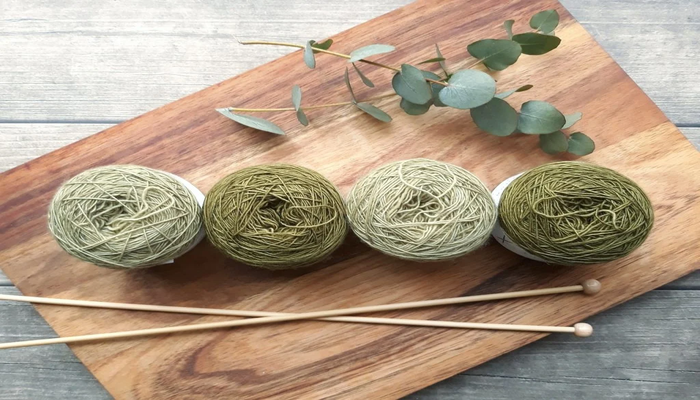Handmade products are more than just items; they represent creativity, craftsmanship, and individuality. As people seek unique alternatives to mass-produced goods, the demand for these products continues to grow.
In South Africa, handmade goods are quickly becoming a symbol of both quality and cultural richness. Whether you’re looking to express your creativity or boost your income, handmade products offer a rewarding opportunity.
Curious about how you can tap into this exciting market and start earning extra income? Keep reading to discover how easy it can be to turn your passion into profit with handmade creations.
The Growing Demand for Handmade Products
In South Africa, there is a noticeable shift towards supporting local artisans and small businesses. Consumers are becoming more conscious of the products they buy, seeking items that reflect craftsmanship, quality, and originality.
Handmade products are seen as a symbol of individuality and artistry, and many buyers prefer them over mass-produced items. This trend is not just about aesthetics; it’s also driven by a desire to support the local economy and reduce the environmental impact of fast fashion.
Benefits of Selling Handmade Products
Selling handmade products offers a variety of benefits. First, it allows you to tap into a niche market that values creativity and uniqueness.
Unlike mass-produced goods, handmade products can carry personal stories, cultural significance, and a touch of the creator’s personality, making them highly appealing to consumers.
Additionally, creating handmade products gives you the flexibility to work at your own pace, from the comfort of your home, or even set up a booth at local markets.
The low startup costs and minimal overhead make this business idea accessible to almost anyone with a creative spark.
Popular Handmade Products in South Africa
In South Africa, certain handmade products are particularly popular and have proven to be great sources of extra income for many artisans. Some of these products include:
1. Handmade Jewelry
Jewelry is always in demand, and handmade jewelry has become a staple in the South African market.
From beaded bracelets to custom silver rings, unique designs catch the eye of fashion-conscious consumers. If you have a knack for working with different materials, creating bespoke pieces can be both profitable and fun.
2. Handcrafted Clothing and Accessories
Clothing items, especially those with African-inspired designs, have seen a surge in popularity.
Whether it’s a colorful handmade scarf or a hand-sewn dress, consumers love items that tell a story. Handmade products in this category can showcase the rich cultural heritage of South Africa, which can resonate strongly with both local and international buyers.
3. Home Décor and Furniture
South Africans take pride in their homes, and handmade home décor is an excellent market to tap into. From woven baskets to custom furniture pieces, the demand for handmade products in home décor continues to grow.
The ability to create one-of-a-kind pieces makes it an appealing business idea, especially for those with an eye for interior design.
4. Handmade Soaps and Skincare
As the wellness and self-care industry continues to boom, there is an increasing demand for handmade products like soaps, lotions, and skincare items.
Using natural ingredients, many South Africans are looking for healthier, eco-friendly alternatives to commercial beauty products. If you have knowledge of natural skincare, this could be a great avenue to explore.
5. Handmade Art and Paintings
Artists in South Africa have an abundance of talent, and handmade art pieces, including paintings, drawings, and sculptures, are often sought after.
The diversity of cultures and the country’s natural beauty provides rich inspiration for unique art that stands out in the market. Selling handmade products like art can be a great way to share your talent and make a meaningful connection with buyers.
How to Get Started with Handmade Products
Starting a business based on handmade products doesn’t have to be complicated. Here’s a step-by-step guide to get you started:
1. Identify Your Craft
First, figure out what handmade products you enjoy making the most. Are you passionate about jewelry making? Or perhaps you’re interested in woodworking or pottery? Choose a craft that excites you and aligns with your skills.
2. Source Materials
Once you’ve decided on your craft, begin sourcing the necessary materials. South Africa has a variety of suppliers for different types of products.
Whether you need beads, fabric, or wood, finding high-quality materials will set the foundation for producing great handmade products.
3. Set Up an Online Store
The internet has made it easier than ever to reach potential customers. Platforms like Etsy, Instagram, and even Facebook provide a marketplace where you can showcase your handmade products.
South Africans are increasingly using these platforms to purchase unique items, so having an online presence is crucial for growing your business.
4. Start Small and Scale
It’s always wise to start small. Focus on creating a few handmade products that you can perfect, then gradually scale your offerings.
Once you feel confident with your designs, you can increase production and even start selling to local retailers or at craft fairs.
5. Marketing Your Handmade Products
Marketing is key to selling handmade products successfully. Leverage social media to showcase your creations.
High-quality photos and engaging content can help draw attention to your items. Building a loyal customer base by offering excellent customer service and high-quality products will help you thrive in this competitive market.
Challenges of Selling Handmade Products
While selling handmade products can be rewarding, it’s important to be aware of the challenges. One common issue is managing time effectively, especially if you’re creating the products on your own.
Production can take longer than expected, and balancing orders with personal life may become a juggling act.
Another challenge is pricing. Setting the right price for your handmade products can be tricky. You need to consider factors such as material costs, labor, and market competition while also ensuring your prices remain competitive.
Conclusion
South Africa offers a fertile ground for entrepreneurs looking to make extra income through handmade products. Whether you’re crafting jewelry, home décor, or skincare items, there’s a market for unique, quality goods.
The key to success lies in choosing the right products, honing your craft, and effectively marketing your creations. With dedication and creativity, selling handmade products can be a profitable and fulfilling way to earn extra income while contributing to the vibrant local economy.





